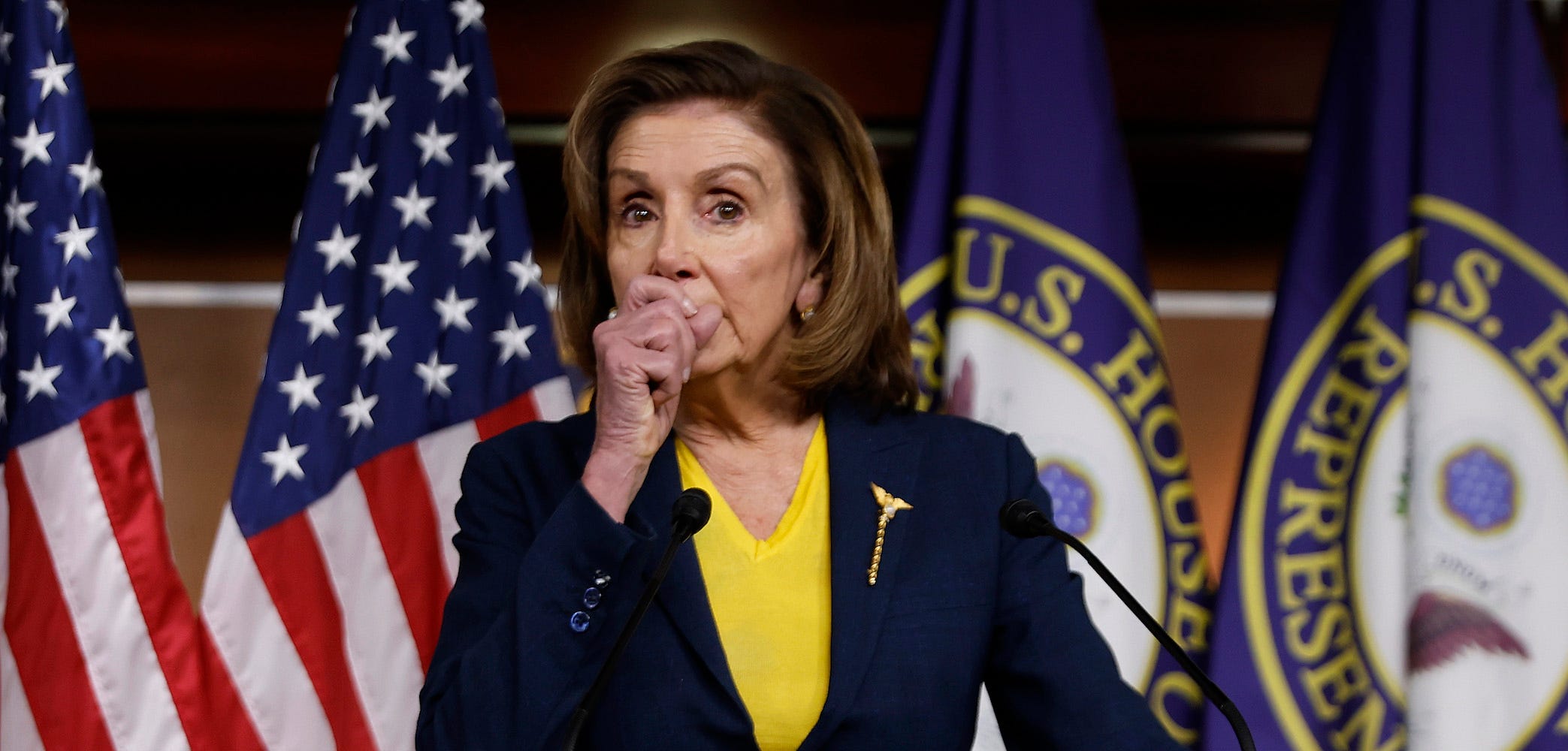
- Shahid Buttar is running his third race to try and unseat House Speaker Nancy Pelosi in California.
- He's been critical of her financial dealings for years.
- Buttar wants more restrictions on congressional lawmakers' stock-trading activities.
Nancy Pelosi's challenger in California thinks putting the House speaker on blast for supporting congressional stock trading might finally pay dividends for him in his third attempt at unseating the long-term lawmaker.
"She spent 34 years enriching herself at the public's expense. And this is how," Shahid Buttar, a Democrat who unsuccessfully ran against Pelosi in 2020 and 2018, told Insider in an exclusive interview.
Pelosi is running for reelection to a 19th term even as she takes heat from anti-corruption advocates and lawmakers from both parties the past two months for saying lawmakers should enjoy the "free market economy" and continue to trade in individual stocks.
"The only reason we're having this conversation is because somebody actually showed up for work and asked Nancy Pelosi last year to defend an indefensible practice," Buttar said of the ongoing uproar sparked by Insider's "Conflicted Congress" project.
The months-long investigation revealed that dozens of federal lawmakers and nearly 200 senior-level congressional staffers have violated the Stop Trading on Congressional Knowledge Act and rarely get penalized for it.
Senate Majority Leader Chuck Schumer recently asked Democrats pushing competing stock trading proposals to find common ground in order to expedite bringing some sort of fix to the floor for a vote. Across the Capitol, Pelosi tasked House Administration Committee Chairwoman Zoe Lofgren with reviewing legislative options on the stock banning front. Pelosi said she's open to changes "if members want to do that."
Pelosi's spokesman Drew Hammill told Insider that "recommendations will be made soon," but declined to comment on the prospects of a House vote before the midterm elections in November.
While Buttar, who faces a longshot bid to unseat Pelosi, said he's glad the rest of the world has finally caught up, he's also apoplectic that it took everyone so long. He called Pelosi out about her finances in April 2021, inquiring on social media whether she was serving "her constituents or her $140-million portfolio."
"This is unapologetic, open corruption," Buttar.
—Shahid Buttar for Congress (@ShahidForChange) January 21, 2022
Buttar and seven other challengers will face off on the June 7 primary against the 81-year-old San Franciscan who has weathered seven presidential administrations during her tenure on Capitol Hill.
"I walked away from a pretty cushy job in a well-funded nonprofit in order to fight the steepest climb in politics because I'm not willing to just do the easy thing," said Buttar, who previously worked at the Electronic Frontier Foundation.

Third time's the charm?
Buttar's run against Pelosi is as uphill a battle as it was the previous two times. He lost by more than a 3-to-1 margin in the 2020 election, collecting just 22% of the vote to Pelosi's 78%. His campaign was rocked that year by allegations of sexual harassment and fostering a toxic workplace. Buttar has repeatedly denied the accusations and sued the San Francisco Chronicle about the sexual harassment coverage last summer.
The constitutional lawyer-turned political activist didn't make it past the primary in 2018, coming in third behind Republican contender Lisa Remmer. Pelosi beat Remmer by a 7-to-1 margin that fall.
Buttar said he's returning to the ring to fight for what he believes in; codifying access to health care, housing, and food as basic human rights. He said he hosted a rally outside Pelosi's district office in San Francisco on December 30, 2021, to highlight the conflicts of interest that have emerged throughout her career — dating back to questions about the money she made on credit company Visa's IPO while the House was considering legislation to cut card-swipe fees.
"This is an issue I've been beating the drum about for years," Buttar said, adding that his stance on cutting off Congress from trading stocks isn't just the outrage du jour. "It's existential to our campaign."
The STOCK Act clearly isn't working, Buttar said. So he's all for cracking down on everyone involved.
"Mere disclosure is in no way sufficient. And no one should pretend that it is," he said of current law. To be truly effective, Buttar added, any new stock trading ban must include elected officials, congressional staff, and respective family members of both.
—Shahid Buttar for Congress (@ShahidForChange) February 2, 2022
He'd even go one step further — calling for a blanket prohibition on stock call options. Call options are specialty financial deals that enable traders, who must pay a per-share premium, to buy specific stocks for a set price at a future date.
"It's the kind of thing that hedge fund managers use," Buttar said of the highly speculative investments. And he said he can't square why the "Speaker of the House approaches the markets like a hedge fund manager instead of a guardian of the public interest."
An Insider analysis of publicly available financial records for 2020 shows that Pelosi is worth approximately $46 million. The filings also show that Pelosi does not personally trade stocks. Her investment manager husband Paul Pelosi, on the other hand, trades all the time — buying up to $3.5 million worth of call options in December 2021 alone.
Hammill, Pelosi's spokesman, previously told Insider that the speaker "has no prior knowledge or subsequent involvement in" her husband's investment moves.
It all sounds crooked, according to Buttar, who said mixing privately held stocks with public policymaking is a proven recipe for disaster.
"It's a conflict of interest that invites corporate influence into their substantive decision making," he said of the status quo, casting the fossil fuels distributors, drug makers, and defense contractors packed into lawmakers' financial portfolios as powerful puppeteers.
"Members of Congress are more committed to those industries than their constituents precisely because they make money off it," Buttar said. "It is that simple."
Buttar said he'd be fine with abiding by stricter congressional stock trading rules — whether by requiring all members to hand over control of their finances to a qualified blind trust, or limiting investments to diversified holdings like exchange-traded funds — because he's got no portfolio to speak of.
"My net worth is negative. I still owe student debt from my time at Stanford," he said. Buttar added that running against Pelosi three times has forced him to prematurely dip into his tax-favored retirement accounts to stay afloat.
"I think I would be the poorest member of Congress to join the body — if I win," he said.











